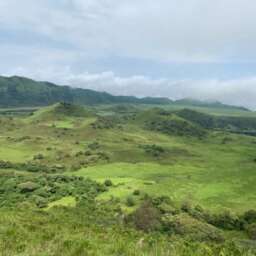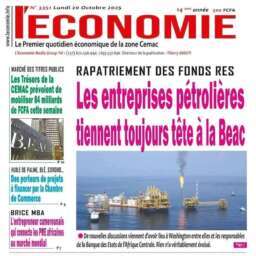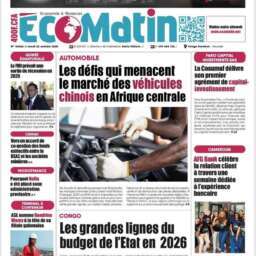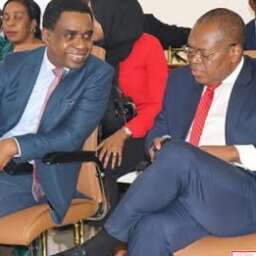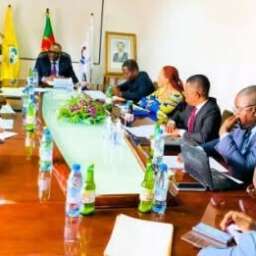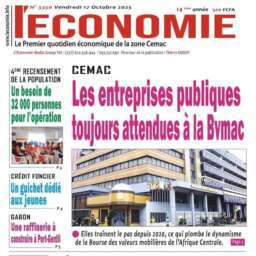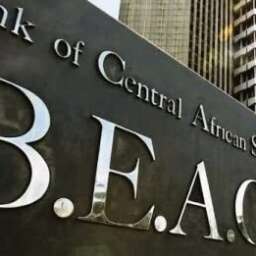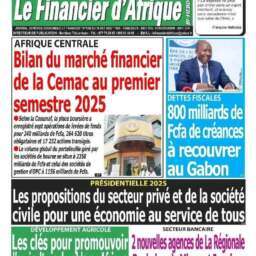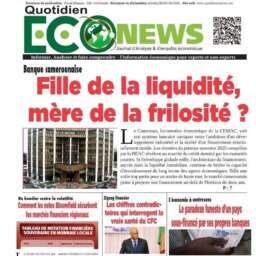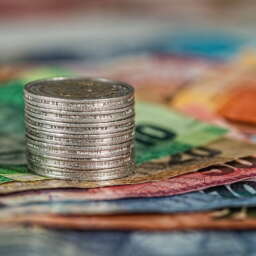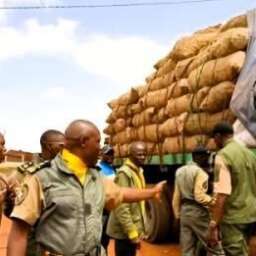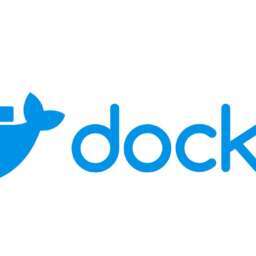(Business in Cameroon) – During the 4th Forum on China-Africa Cooperation (FOCAC) held in Beijing, Cameroon’s President Paul Biya made a strong call for increased Chinese investments in the country’s road infrastructure. His request is aimed at boosting the development of roads and other large-scale projects in Cameroon.
“We are set to launch our second-generation flagship projects soon, including Phase 2 of the Yaoundé-Douala highway, the Edéa-Kribi highway, the Douala-Bafoussam road, the Yaoundé bypass, the Ebolowa-Akom 2-Kribi road, the Ngaoundéré-Garoua road, and the Maroua-Kousseri road,” President Biya announced during his meeting with Chinese President Xi Jinping on September 4, 2024. He added that these projects present key investment opportunities for the Cameroonian government and Chinese companies.
In his traditional end-of-year address in 2023, President Biya had already mentioned the planned start or resumption of several road projects in 2024. He specifically noted that negotiations over the Ebolowa-Kribi road, which had faced environmental issues, were moving forward positively. Additionally, he gave orders for the rehabilitation of the Ngaoundéré-Garoua road and emphasized the need to keep pushing for the completion of the Mora-Dabanga-Kousséri road and the rehabilitation of the Edéa-Kribi and Douala-Bafoussam roads.
The China First Highway Engineering Corporation (CFHEC) was selected to handle Phase 2 of the Yaoundé-Douala highway, which spans 136 kilometers and is valued at CFA812.8 billion. As for the Edéa-Kribi road (107 km), rehabilitation work was set to start in 2023 and expected to finish by 2027, with an estimated cost of CFA102 billion. This project is partially funded by the African Development Bank (AfDB).
Other significant projects include the Yaoundé bypass, which has a projected cost of CFA1,264 billion, and the Ebolowa-Akom 2-Kribi road (179.2 km). The rehabilitation of the Ngaoundéré-Garoua road (242 km) is particularly vital to Cameroon’s economy, as it is part of the Douala-N’Djamena corridor, through which about CFA350 billion worth of Chadian goods pass every year. The Mora-Maroua-Kousséri road (205 km), connecting Cameroon to Nigeria and Chad, is also a strategic route.
President Biya stressed that Cameroon needs substantial funding to achieve its goal of becoming an emerging economy by 2035. “Our goal is to build a stronger economy based on competitive local industries capable of transforming our mineral and agricultural resources to meet domestic needs and export in large quantities,” he said. He urged China and its businesses to enhance their support to help realize this vision.
He also expressed hope that ongoing talks with China’s Eximbank would lead to clear and straightforward financing agreements, avoiding any misunderstandings that could delay project execution. Biya acknowledged the importance of Chinese investments in Cameroon’s development.
According to Cameroon’s National Institute of Statistics (INS), trade between China and Cameroon reached CFA1,178.1 billion in 2023, up 24.1% from the previous year. China is Cameroon’s largest supplier, accounting for 18.9% of the market, ahead of India and France. China is also the largest investor in the country. In 2023, Cameroon attracted an estimated $799 million in foreign direct investment (FDI), largely due to Chinese involvement.
However, China is also Cameroon’s top creditor, ahead of the World Bank and the International Monetary Fund (IMF). In the first quarter of 2024, Cameroon repaid CFA148.2 billion in debts to Eximbank China, including CFA34.7 billion in interest and CFA113.5 billion in principal. These repayments were the largest amounts of debt and interest settled by Cameroon so far this year, according to the Autonomous Sinking Fund (CAA), the country’s public debt manager.


